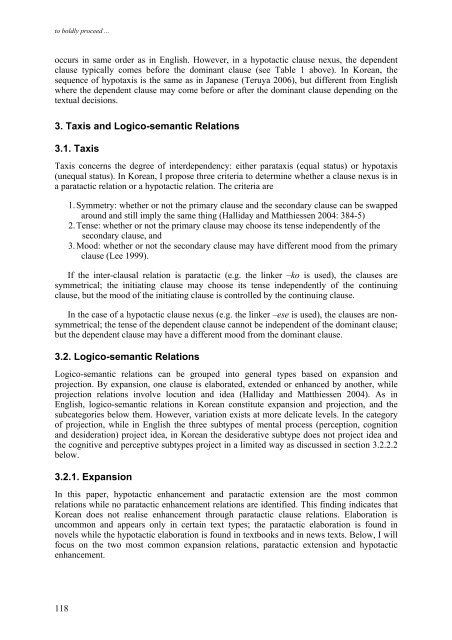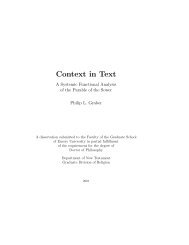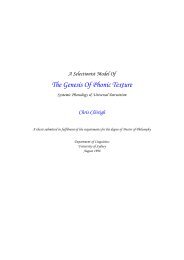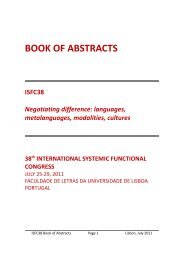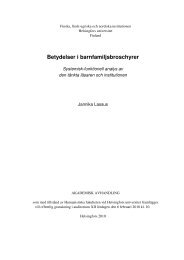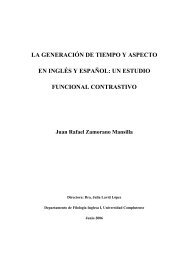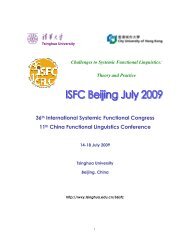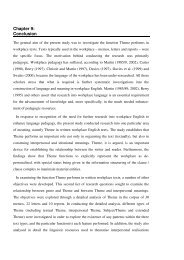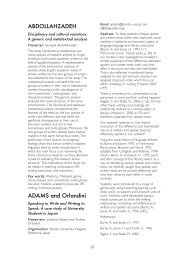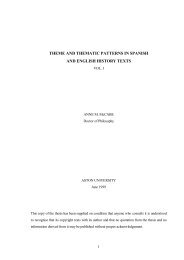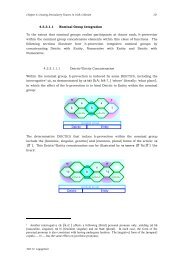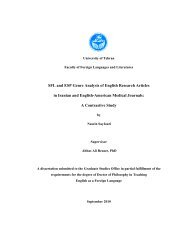the ISFC39 Proceedings - International Systemic-Functional ...
the ISFC39 Proceedings - International Systemic-Functional ...
the ISFC39 Proceedings - International Systemic-Functional ...
Create successful ePaper yourself
Turn your PDF publications into a flip-book with our unique Google optimized e-Paper software.
to boldly proceed ...occurs in same order as in English. However, in a hypotactic clause nexus, <strong>the</strong> dependentclause typically comes before <strong>the</strong> dominant clause (see Table 1 above). In Korean, <strong>the</strong>sequence of hypotaxis is <strong>the</strong> same as in Japanese (Teruya 2006), but different from Englishwhere <strong>the</strong> dependent clause may come before or after <strong>the</strong> dominant clause depending on <strong>the</strong>textual decisions.3. Taxis and Logico-semantic Relations3.1. TaxisTaxis concerns <strong>the</strong> degree of interdependency: ei<strong>the</strong>r parataxis (equal status) or hypotaxis(unequal status). In Korean, I propose three criteria to determine whe<strong>the</strong>r a clause nexus is ina paratactic relation or a hypotactic relation. The criteria are1. Symmetry: whe<strong>the</strong>r or not <strong>the</strong> primary clause and <strong>the</strong> secondary clause can be swappedaround and still imply <strong>the</strong> same thing (Halliday and Matthiessen 2004: 384-5)2. Tense: whe<strong>the</strong>r or not <strong>the</strong> primary clause may choose its tense independently of <strong>the</strong>secondary clause, and3. Mood: whe<strong>the</strong>r or not <strong>the</strong> secondary clause may have different mood from <strong>the</strong> primaryclause (Lee 1999).If <strong>the</strong> inter-clausal relation is paratactic (e.g. <strong>the</strong> linker –ko is used), <strong>the</strong> clauses aresymmetrical; <strong>the</strong> initiating clause may choose its tense independently of <strong>the</strong> continuingclause, but <strong>the</strong> mood of <strong>the</strong> initiating clause is controlled by <strong>the</strong> continuing clause.In <strong>the</strong> case of a hypotactic clause nexus (e.g. <strong>the</strong> linker –ese is used), <strong>the</strong> clauses are nonsymmetrical;<strong>the</strong> tense of <strong>the</strong> dependent clause cannot be independent of <strong>the</strong> dominant clause;but <strong>the</strong> dependent clause may have a different mood from <strong>the</strong> dominant clause.3.2. Logico-semantic RelationsLogico-semantic relations can be grouped into general types based on expansion andprojection. By expansion, one clause is elaborated, extended or enhanced by ano<strong>the</strong>r, whileprojection relations involve locution and idea (Halliday and Matthiessen 2004). As inEnglish, logico-semantic relations in Korean constitute expansion and projection, and <strong>the</strong>subcategories below <strong>the</strong>m. However, variation exists at more delicate levels. In <strong>the</strong> categoryof projection, while in English <strong>the</strong> three subtypes of mental process (perception, cognitionand desideration) project idea, in Korean <strong>the</strong> desiderative subtype does not project idea and<strong>the</strong> cognitive and perceptive subtypes project in a limited way as discussed in section 3.2.2.2below.3.2.1. ExpansionIn this paper, hypotactic enhancement and paratactic extension are <strong>the</strong> most commonrelations while no paratactic enhancement relations are identified. This finding indicates thatKorean does not realise enhancement through paratactic clause relations. Elaboration isuncommon and appears only in certain text types; <strong>the</strong> paratactic elaboration is found innovels while <strong>the</strong> hypotactic elaboration is found in textbooks and in news texts. Below, I willfocus on <strong>the</strong> two most common expansion relations, paratactic extension and hypotacticenhancement.118


